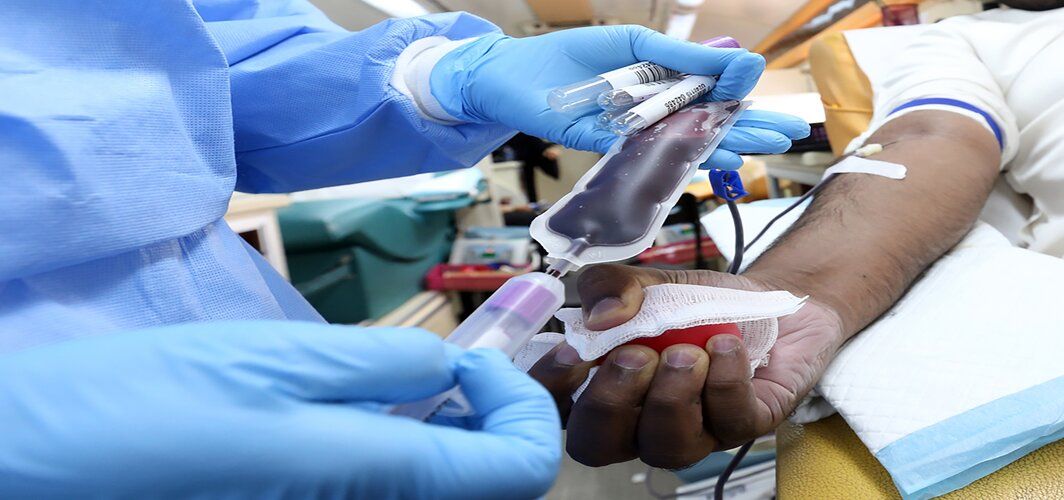Coronavirus Updates
What Are the Less Common and Unusual Symptoms of Coronavirus?
5 min read
By Apollo 24/7, Published on - 15 August 2020, Updated on - 18 October 2022
Share this article
2
16 likes

When the World Health Organization (WHO) declared COVID-19 a pandemic earlier this year, its symptoms were mainly limited to fever, cough, sore throat, and fatigue. Now, a few months later and with a significant increase in the number of cases worldwide, newer and rare symptoms have emerged. Before discussing these symptoms in this article, let us first understand the severity categories in COVID-19 and the corresponding symptoms observed.
COVID-19 severity and its symptoms
Patients infected with Coronavirus can have symptoms that are mild, moderate, or severe. The symptoms observed in each of these cases have been listed below:
|
Severity |
Symptoms |
|
Mild |
Fever, cough, sore throat, nasal congestion, headache, malaise |
|
Moderate |
Fever, cough, difficulty in breathing |
|
Severe |
Severe respiratory distress, cough, difficulty in breathing, lethargy or unconsciousness, convulsions, acute respiratory distress syndrome, sepsis |
Rare and less common symptoms of COVID-19
As mentioned earlier, fever, cough, sore throat, and tiredness were the most common symptoms reported amongst mild to moderate COVID-19 cases. Besides these, there are some less common symptoms of COVID-19 that have been reported recently by the WHO and the Centers of Disease Control and Prevention (CDC). These symptoms are:
- Loss of smell (anosmia): The nasal cavity forms the main gateway for the Coronavirus to enter the human body. Scientists discovered that Coronavirus uses ACE-2 receptors to dame tissues in the nasal cavity causing the infected person to lose their sense of smell, also known as anosmia. A COVID RADAR (app to track COVID-19) survey conducted in the United Kingdom reported anosmia as a symptom in 59% of COVID-19 patients. It is now considered a strong predictor of Coronavirus infection.
- Loss of taste (dysgeusia or ageusia): The oral cavity is also one of the entrances for Coronavirus infection and can lead to an altered taste sensation, also known as dysgeusia or ageusia. Dysgeusia is the distortion of the sense of taste whereas ageusia is the complete loss of taste. From the combined data of five clinical studies, 50% (407 out of 817) patients reported symptoms of dysgeusia. While in another study, 71% (42 out of 59) patients showed similar symptoms.
However, despite increasing cases of smell and taste loss in COVID-19 patients, the majority of the infected people recovered from their sensory losses rapidly.
- Conjunctivitis (pink eye): Coronavirus can spread by touching tears or discharge from an infected person’s eyes. The first case of Conjunctivitis in a confirmed case of Coronavirus was reported in a 30-year-old man whose eyes were infected after 13 days of infection onset. This study was published in the BMJ (British Medical Journal). Another Chinese study revealed 4.68% (25 out of 534 patients) cases of Conjunctivitis. Hence, Conjunctivitis is considered one of the possible symptoms of COVID-19 and has been reported in 1-3% of the patients.
- Skin rash: Doctors have warned that COVID-19 patients may develop frostbite-like rashes or red, purple, or blue color patches on their fingers or toes. These rare symptoms have been nicknamed as “COVID Toes”. The earliest Coronavirus skin infection was reported in Lombardy, Italy where 20% (18 out of 88 patients) developed hives or urticaria (itchy red rashes), and chickenpox like papules or blisters. In another study done by the British Journal of Dermatology, five skin rash patterns were categorized in 375 COVID-19 patients. These included chill burns, blisters, itchy red flat or swollen skin, tiny raised bumps on the skin, and black dead infected skin.
Recommended reading: Are Skin Rashes an Indication of COVID-19 Infection?
- Gastrointestinal issues (nausea, vomiting, and diarrhea): According to the CDC, COVID-19 patients may experience symptoms like nausea, vomiting, and diarrhea, sometimes even before developing respiratory system infection. In the report published by WHO, vomiting and nausea symptoms have been found in 5% of patients. In a study published by the New England Journal of Medicine (NEJM), 5% of patients reported nausea while 3.8% of patients reported vomiting. Sometimes these gastrointestinal symptoms may be due to indigestion, stress, or food poisoning, but do consult a doctor if you develop any of these symptoms.
- Muscle pain (Myalgia) and joint pain (arthralgia): The WHO added muscle pain (myalgia) as one of the less common coronavirus symptoms in its list. It reported that 14.8% of patients out of the 55,924 COVID-19 confirmed cases in China reported myalgia or arthralgia (joint pain). Another study presented data on 12,046 Coronavirus positive patients in which 25.6% and 15.5% reported fatigue and arthralgia respectively. Musculoskeletal symptoms like myalgia, arthralgia, and fatigue can be indirectly linked with COVID-19 mainly arising from inflammatory and/or immune response.
Emergency symptoms of COVID-19
There are some emergency symptoms of COVID-19 that may require you to seek the advice of a doctor immediately or get hospitalized. These symptoms may occur if you have been in close contact with a COVID-19 patient for more than 5 minutes or are sneezed or coughed on by an infected person.
Here are the emergency signs and symptoms which indicate that you should seek medical help immediately:
- Trouble or difficulty in breathing
- Regular chest pain
- Blue face or lips
- Mental confusion
- Inability to stay awake
Conclusion
Scientists are exploring the novel Coronavirus and every day, new findings of this disease are surfacing. The rare symptoms mentioned in the article can predict the possible early or late onset of the COVID-19 infection. However, symptoms like loss of taste or smell, gastrointestinal disturbances, conjunctivitis, or skin rashes may not always be linked to COVID-19. Nonetheless, there may be a possibility that you or your loved ones may be infected with the Coronavirus if these symptoms persist. Hence, if you notice any of these lesser-known symptoms, you must consult a doctor immediately.
Coronavirus Updates
Leave Comment
Recommended for you

Coronavirus Updates
Is Convalescent Plasma Therapy a Promising Treatment for COVID-19?
So far, there are no robust pieces of evidence to suggest that convalescent plasma therapy can be used as the definitive and sole treatment for COVID-19.

Coronavirus Updates
Who Is at Higher Risk for Severe Illness Due to COVID-19?
Older adults, and individuals with asthma, diabetes, HIV, liver disease, heart conditions, and those whose immune systems have been compromised have a higher risk of severe illness from COVID-19.

Coronavirus Updates
What is ‘Coronavirus Herd Immunity’ and How It Can Be Attained
Herd immunity prevailing in the world's second-most populous country cannot be the only solution to overcoming the pandemic and other strategic options like vaccination are also being accelerated.
Subscribe
Sign up for our free Health Library Daily Newsletter
Get doctor-approved health tips, news, and more.
Visual Stories

Can India Beat the COVID-19 Surge?
Tap to continue exploring
Recommended for you

Coronavirus Updates
Is Convalescent Plasma Therapy a Promising Treatment for COVID-19?
So far, there are no robust pieces of evidence to suggest that convalescent plasma therapy can be used as the definitive and sole treatment for COVID-19.

Coronavirus Updates
Who Is at Higher Risk for Severe Illness Due to COVID-19?
Older adults, and individuals with asthma, diabetes, HIV, liver disease, heart conditions, and those whose immune systems have been compromised have a higher risk of severe illness from COVID-19.

Coronavirus Updates
What is ‘Coronavirus Herd Immunity’ and How It Can Be Attained
Herd immunity prevailing in the world's second-most populous country cannot be the only solution to overcoming the pandemic and other strategic options like vaccination are also being accelerated.